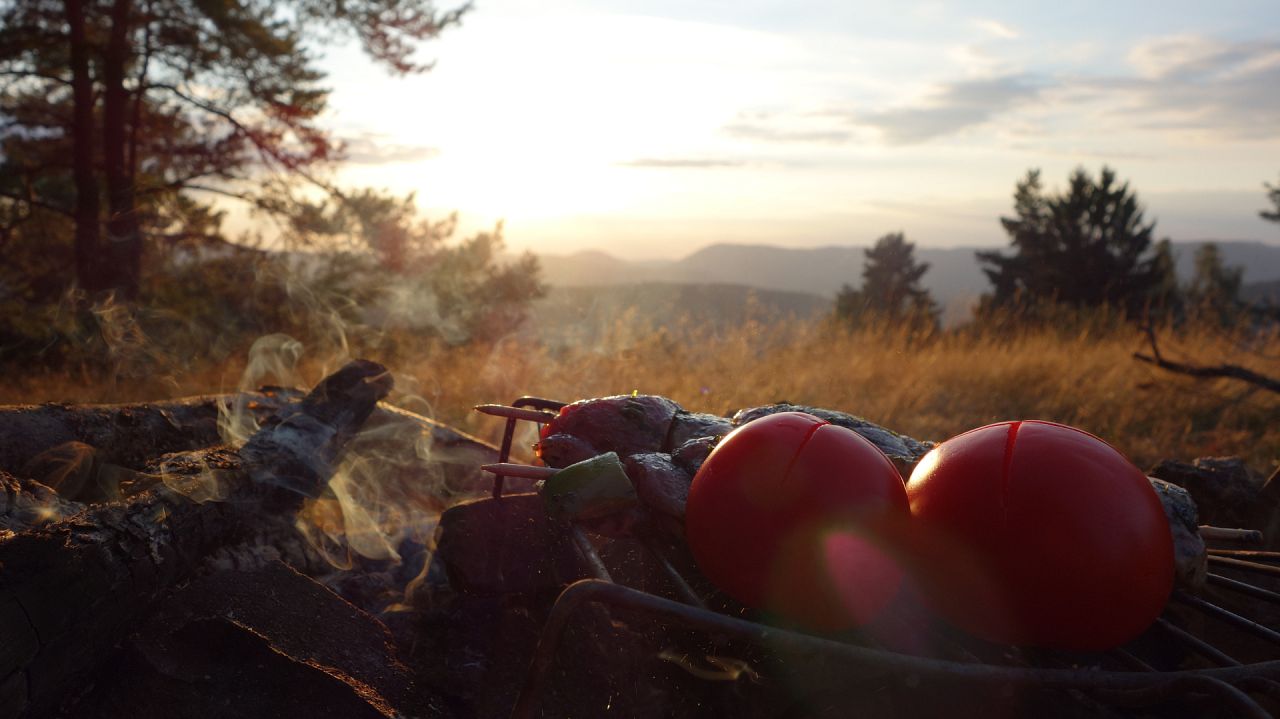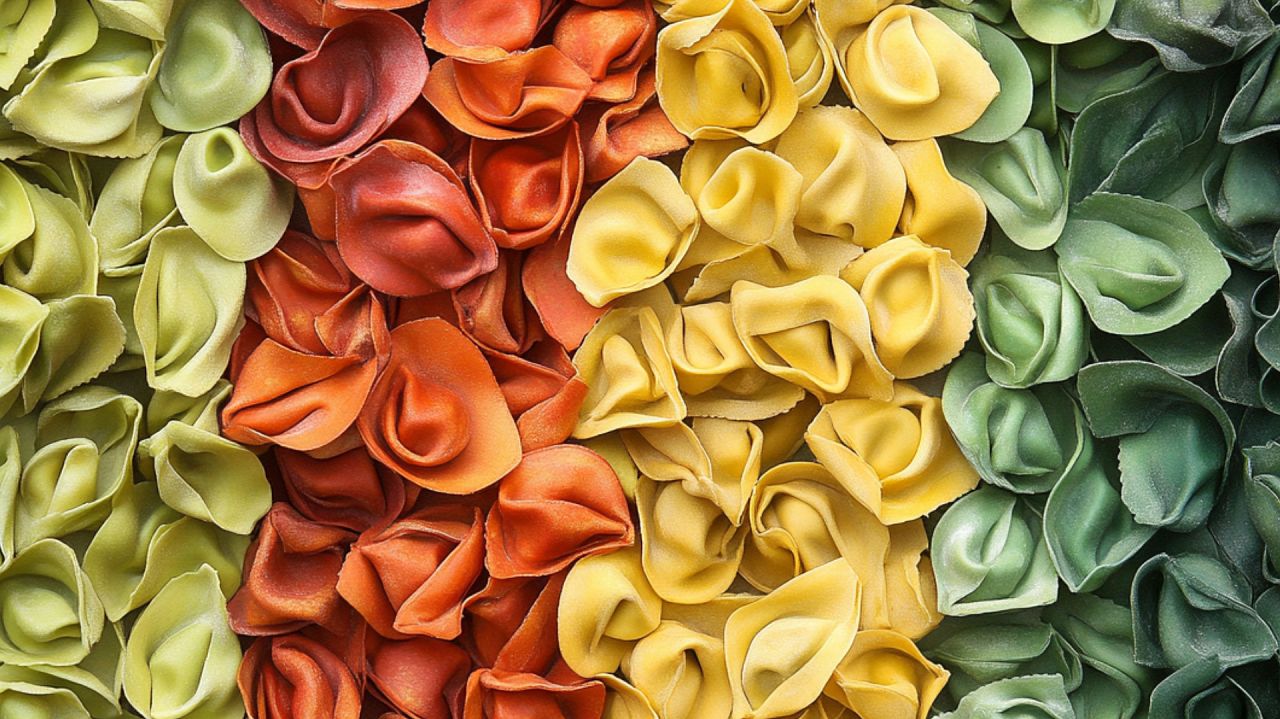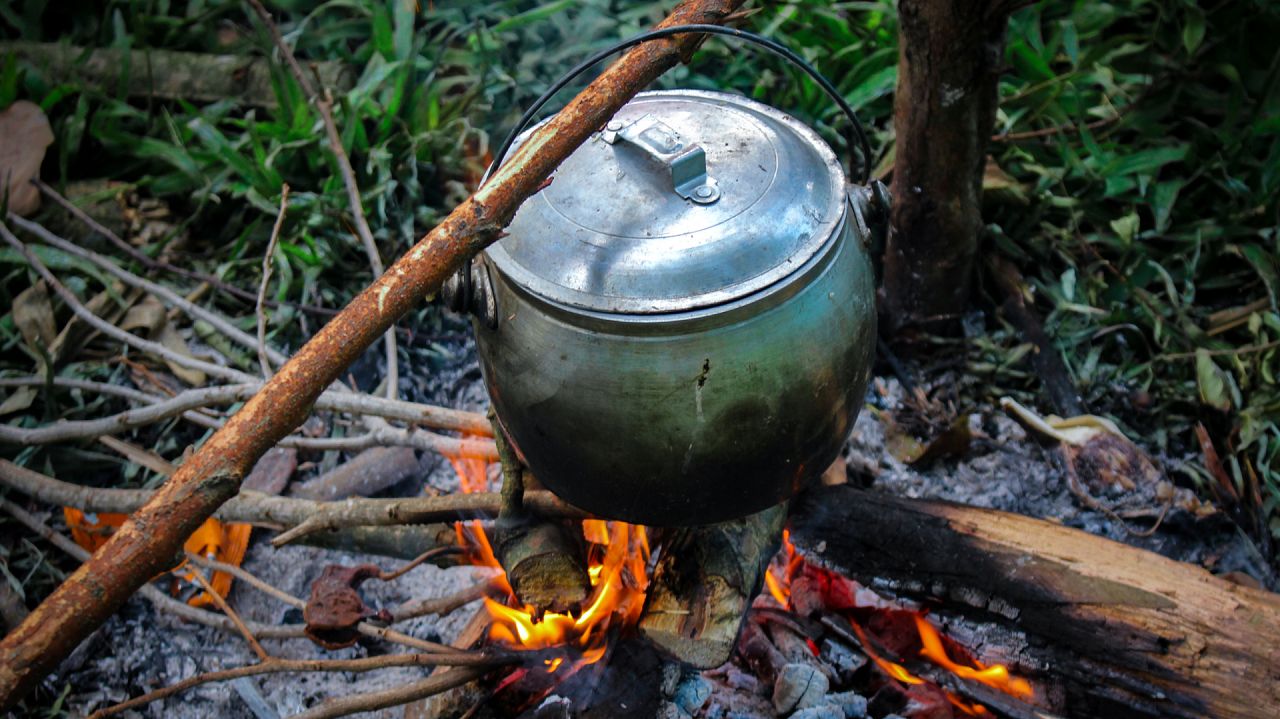From social media-driven reinventions of classic dishes to immersive dining experiences in the wilderness, food traditions are being rewritten before our eyes. Culinary heritage isn’t being preserved in a museum: it’s being brought to life in kitchens worldwide.
Rather than simply replicating age-old recipes, or repurposing cuisine between two different cultures, today’s chefs are fusing their cultural roots with flavours, methods, and influences from around the world.
This is “Turnover Tradition”: the redefinition of heritage cooking as chefs and content creators blend ancestral techniques with global influences, personal narratives, and modern innovations.
Take Siberian-born chef and author Alissa Timoshkina, who has reimagined Eastern European staples for her cookbook Kapusta: Vegetable-Forward Recipes from Eastern Europe.
Focusing on humble ingredients like cabbage, beetroot, and mushrooms, Timoshkina elevates the humblest of components by applying modern cooking techniques and creative flair.
Her approach not only preserves traditional flavours but also aligns them with contemporary tastes and dietary preferences.
Meanwhile, chefs in Spain’s Basque Country are merging age-old fermentation methods with avant-garde culinary techniques to reinvent pintxos, the small flavourful bites traditionally enjoyed in the region’s bars.
At the forefront is chef Josean Alija of Bilbao’s Michelin-starred restaurant Nerua. His cooking emphasises seasonality and locality, collaborating closely with regional producers to craft dishes that honour Basque traditions while incorporating modernist elements.
Alija’s philosophy centres on staying true to ingredients and identity, resulting in innovative interpretations of classic flavours.
Bringing the past outdoors
One of the most striking examples of this movement is chef Davide Nanni, who has gained popularity by taking Italian cuisine back to its roots — quite literally.
As showcased on his Instagram profile, Nanni cooks in nature, using fire and primitive methods to highlight the rich culinary traditions of central Italy’s Abruzzo region. Rather than relying on modern kitchen setups, he prepares dishes using only raw elements — earth, fire, and wood — bringing ancient cooking techniques back into the spotlight.
However, this isn’t simply nostalgia; it’s a carefully crafted reinvention.
His dishes, such as arrosticini (Abruzzese lamb skewers) slow-cooked over an open flame and handmade pasta prepared with age-old methods, are a tribute to Italy’s rural history, but feel refreshingly new in their presentation and experience.
Nanni’s work is part of a broader trend in Europe where chefs are leaving behind traditional restaurant settings to create immersive, nature-based dining experiences, blending sustainability with a return to heritage.
A tribal way of eating
Another key feature of the Turnover Tradition is the rise of nomadic dining experiences, where chefs craft meals in wild landscapes to reconnect diners with nature.
Projects like Nomadic Dinners take guests deep into the woodlands for immersive, open-fire feasts inspired by ancient communal eating practices.
These experiences are less about fine dining and more about storytelling, where chefs highlight foraged ingredients, ancestral cooking techniques, and the shared human experience of eating outdoors.
With consumers seeking more meaningful, hands-on culinary experiences, we are tapping into a primal desire for food as an experience, not just a meal. And if chefs are the pioneers of this movement, social media creators are its amplifiers.
Platforms like TikTok, Instagram, and YouTube are making traditional recipes go viral, often with surprising twists. A study titled “The Utilisation of Social Media as Traditional Culinary Documentation in Strengthening Local Tourism” examines how platforms like Instagram serve as vital tools for preserving and promoting traditional cuisines.
The research, which focuses on the Banyumas region in Indonesia, details how millennials are actively engaging in creating and sharing content about local dishes, in the process fostering a renewed appreciation for their culinary heritage.
This digital engagement not only preserves traditional recipes, but also enhances local tourism by showcasing unique culinary practices to a broader audience.
Take Dylan Hollis, a popular social media creator recognised for his lively videos, where he resurrects quirky and forgotten vintage American recipes. Drawing from a collection of more than 340 historic cookbooks, he breathes new life into old dishes, sharing their origins and preparation with his audience.
His charismatic storytelling and humour make these culinary relics both engaging and accessible, sparking renewed interest in the rich and diverse food history of the United States.
Back in Italy, meanwhile, the self-styled Gluten Freelancer is talking about Abruzzese cooking with a twist. Calling her style “traditionally gluten free”, she adapts recipes from her mother’s cookbook to allow coeliacs and people intolerant to gluten to access unique flavours part of central Italy’s culinary heritage.
Her cooking is deeply rooted in tradition, but incorporates a storytelling element that resonates with a modern audience looking for authenticity.
Then there’s Frankie Gaw, a Taiwanese-American food influencer whose series “Turning American Classics Asian” has captivated audiences. Dishes like mochi-infused Twinkies and miso mac and cheese have become internet sensations, demonstrating how fusion cuisine can be both playful and deeply personal.
The future of ‘Turnover Tradition’
So, where is this all heading? The future of food is being shaped by three key trends.
Firstly, hyper-personalised fusion cuisine. The days of rigidly defined national cuisines are fading, replaced by a more fluid, individualised approach to cooking. Expect to see more chefs and home cooks blending their personal backgrounds with global flavours. Traditional dishes won’t be lost; they’ll simply be reinterpreted through new perspectives.
Secondly, a counterbalance to AI-generated food content. With AI now capable of generating recipes, meal plans, and even food photography, the human touch in cooking is more valuable than ever. In-person dining experiences and hands-on cooking will become more prized as a reaction against digitalised food culture.
People won’t just want to see recipes. They’ll want to experience food with all their senses.
Thirdly, a new wave of food tourism. More travellers are seeking authentic, immersive food experiences — not just eating in a restaurant, but learning to cook with locals, visiting markets, and understanding the cultural significance of what’s on their plate. Culinary schools and travel agencies are already shifting toward offering experience-based gastronomy rather than just food recommendations.
The New Culinary Renaissance Turnover Tradition isn’t just a passing trend; it’s a cultural shift. This year, we’ve seen several examples of the blending of tradition and innovation is defining the way we eat, cook, and experience food.
Whether it’s a chef reviving an ancient Armenian dish, a TikTok creator rescuing forgotten recipes, or a nomadic dining experience in the woods, one thing is certain: heritage cuisine is no longer just about the past: it’s about the future, too.








